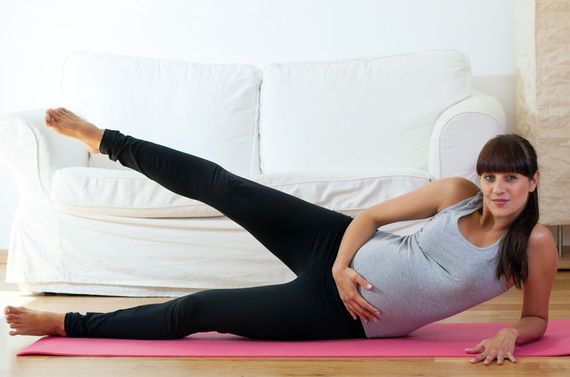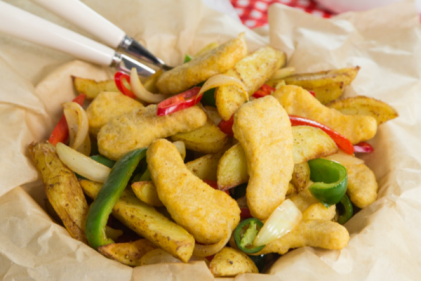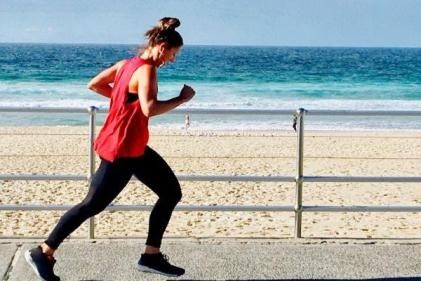 A healthy diet during pregnancy is essential. The food you eat provides the building blocks for a strong, healthy baby and while a healthy pre-pregnancy diet can have huge benefits, taking care of yourself when pregnant is vital for both you and your little one.
A healthy diet during pregnancy is essential. The food you eat provides the building blocks for a strong, healthy baby and while a healthy pre-pregnancy diet can have huge benefits, taking care of yourself when pregnant is vital for both you and your little one.
What to eat when pregnant
The right diet during pregnancy is incredibly important to help Baby grow and Mum deal with all the changes that are happening to her body.
You'll require about 300 calories more per day above your normal caloric intake for the next nine months, so kick the ‘eating for two’ myth to the curb.
Energy boosting foods can be a real asset, so introduce things like wholemeal bread and yoghurt into your diet when pregnant, so that eating them becomes habit by the time you give birth – a time when you’ll find yourself running on autopilot.
There is also a risk of anaemia during pregnancy, with vegetarians finding themselves particularly susceptible to low iron levels. However, you shouldn’t take an iron supplement unless recommended by your doctor; instead stock up on iron-rich food like dark green veg and red meat.
Once you discover you’re pregnant, start taking a prenatal supplement and make sure it contains 600 to 800 micrograms of folic acid. Do remember that more is not necessarily better and mega doses of vitamins and minerals could be harmful to your developing baby.
Food to avoid during pregnancy
Mums-to-be need to be sure they avoid certain foods when pregnant. Stay away from items that are possible sources of harmful bacteria like:
- Raw seafood such as oysters or sushi
- Unpasteurised milk or soft cheeses such as Camembert
- Pate
- Raw or undercooked meat and poultry
Limit your consumption of tuna and other cooked fish to about two servings per week as some fish contain methyl mercury; a metal believed to be harmful to the growing brains of foetuses.
Alcohol consumption during pregnancy can cause physical defects, learning disabilities, and emotional problems in children. Consider cutting back or skipping beverages containing caffeine, as research has found that drinking more than four cups of coffee a day can lead to miscarriage, low birth weight, and even stillbirth.
Alcohol consumption during pregnancy can cause physical defects, learning disabilities, and emotional problems in children. Consider cutting back or skipping beverages containing caffeine, as research has found that drinking more than four cups of coffee a day can lead to miscarriage, low birth weight, and even stillbirth.
Pregnancy diet for nausea
Morning sickness in the first trimester is an issue for most pregnant women and many worry about getting all the necessary nutrients their baby will need during this time. The easiest way to accomplish this is to eat five or six small meals a day, especially if nausea, food aversions, heartburn or indigestion is make eating a chore.
Try to eat at least every four hours even if you're not hungry as your developing baby needs regular sustenance. Don't skip meals.
Pregnancy cravings
Around 90% of pregnant women experience cravings, especially during the first trimester. Since your body is producing a lot more blood, it’s also normal to crave salty foods; however, you may find that you have any number of strange cravings.
Usually, this is your body’s way of asking for nutrients it needs, and it’s fine to indulge, as long as you avoid consuming too much junk food.
Try lower fat, healthier alternatives instead. Substitute yogurt or sorbets for ice cream, or try popcorn or pretzels instead of chips. If you do have to indulge, go for it; just make sure you exercise a little moderation.
Just for fun: Find out what your pregnancy cravings really mean.
Dieting and weight gain during pregnancy
Dieting during pregnancy is potentially hazardous since the design of many diet plans are more than likely to leave your body low on iron, folic acid, and other important nutrients. It’s important to remember that weight gain is actually a positive sign of a healthy pregnancy.
Dieting and weight gain during pregnancy
Dieting during pregnancy is potentially hazardous since the design of many diet plans are more than likely to leave your body low on iron, folic acid, and other important nutrients. It’s important to remember that weight gain is actually a positive sign of a healthy pregnancy.
If you begin at a desirable weight, you should expect your pregnancy weight gain to be between 25 and 35 pounds. If you're underweight, you can gain a bit more, between 28 to 40 pounds. If you start overweight, the goal should be gain a little less, from 15 to 25 pounds.
Check with your obstetrician about gain if you happen to be short (less than 5' 2"), are an adolescent or are carrying more than one foetus.
Exercise during pregnancy
For most expectant mums-to-be, exercise during pregnancy is not only safe, it’s highly recommended. However, before you start, it is a good idea to check with your obstetrician just to be sure it’s ok for you.
The best types of exercise during pregnancy will get your heart pumping and keep you supple. Exercising will help you to manage pregnancy weight gain and prepare muscles for labour and birth. Safe forms of exercise are walking, jogging, swimming, aqua-natal classes and cycling. Yoga and Pilates are also good with a qualified teacher experienced in dealing with pregnant women.
Read these Dos and Don’ts for pregnancy exercise before you get started.










